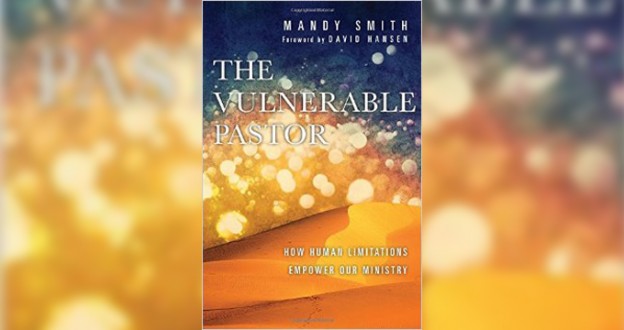 Within a church culture that continually draws from business models and looks to leadership gurus for wisdom on how to shepherd Christ’s body, along with the growing demands of a church community that is continually shaped by a consumer culture that spreads its influence throughout both the “sacred” and “secular” divide, Australia native and Cincinnati based local minister and writer Mandy Smith offers a new option, one that invites readers into a recognition of their own humanity and seeks to live within ministry on what she refers to as “a human scale”.
Within a church culture that continually draws from business models and looks to leadership gurus for wisdom on how to shepherd Christ’s body, along with the growing demands of a church community that is continually shaped by a consumer culture that spreads its influence throughout both the “sacred” and “secular” divide, Australia native and Cincinnati based local minister and writer Mandy Smith offers a new option, one that invites readers into a recognition of their own humanity and seeks to live within ministry on what she refers to as “a human scale”.
Smith’s newest book, The Vulnerable Pastor (InterVarsity Press, 2015), is an invitation into a self realization of ministry that offers the reader the ability to minister, not in spite of their weakness but to see this weakness as a ministry resource for which they have an unlimited supply. Beginning with her own sense of inadequacy as she entered into pastoral ministry, Smith offers the reader the opportunity to wrestle with their own feelings and perceptions of inadequacy and extends an invitation to live into a vulnerability that is not often welcomed within a leadership culture that demands decisiveness and assurance in one’s own strength and ability to lead.
This invitation will surely come as a breath of fresh air to those tired and worn out by consumer religion and will act as a catalyst for further life change as we follow Smith’s example to allow God to work within what we believe to be our weaknesses. By describing her own fears and perceptions that accompany the role of a leader within the local church, Smith welcomes the reader into her own story. From her struggles with her own perceptions of what a strong, successful leader should look like, to wrestling with her own emotions and depression all the while ministering in a very public arena, to finding freedom in the realization that as we open ourselves to the work of the Spirit through prayer and the reading of Scripture, we are welcomed into an adventure in which Christ is already at work both in and through our weaknesses and is using this very work to lead us into Christ’s fullness.
After painting, both literally and figuratively, an image of the inadequacy she felt entering into ministry, Smith responds with a call that all pastors should let sink deep within their ministries and their own frustrations,
“If we truly believe that the same God who is in us is also in the world, this church and every believer, there must be a way forward – not always an easy way, but a way nonetheless. If we truly believe that his Word is truth and power, then we can set aside our striving in our own power to draw people to ourselves and see our part in God’s work to draw all people to himself” (p. 155)
With the image of Christ’s own power working through our weakness, the reader is called to look beyond what they understand as their own inadequacy to see how God is using these areas to emphasize and recognize our own humanity. With this humanity properly set in focus, Smith begins to share stories in which the Lord is working and has worked through her own church and how this recognition of weakness has allowed room for the Spirit to move freely in the life of those who worship with her. This freedom is expressed in a community that is open to process and is patiently faithful in times of doubt–that seeks to be educated by scripture and led in preaching all the while being open to practicing this Christian life with an audience and not feeling the need to perfect an image in private, free from eyes of the congregation and one’s own fears of “failing” in public.
Smith acknowledges that vulnerable leadership is not comfortable but it is necessary for both the world and the local church to acknowledge as we begin to realize the humanity of the church and the Christian life,
“The world needs permission to acknowledge its humanity. Human beings, especially wealthy ones, need to know it’s not shameful to be broken, desperate and inadequate, to sense a need beyond themselves.” (p. 191)
This is not a humanity that accepts our sinful failings but looks to Christ’s incarnated example to understand how we can minister as human beings, free from the pressures of perceived perfectionism and open to the sanctifying work of the Spirit even through our weakness.
A revolutionary book in the truest of terms, The Vulnerable Pastor is a welcome invitation into a life of ministry that operates within the brokenness of people and calls ministers to recognize their own humanity along the way. This is a humanity that is not offered only to those who recognize their brokenness, but even more so to those who feel overcome by the pressures of a ministry culture that seeks to explain and fix anything that hints of inadequacy. The Vulnerable Pastor, although in many respects a journey of Smith’s own realization of her humanity, is also a hand-written letter of invitation for readers to live into their humanity and perceived weaknesses and to allow the movement of the Spirit to work through their unpolished, human selves.



